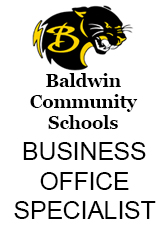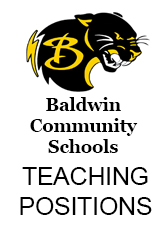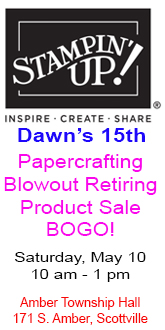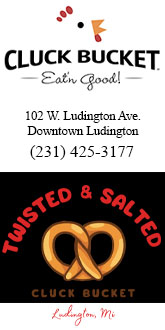Interview with the Artist: Edgar Struble
By Carrie Klemm, MCP Correspondent
The West Shore Community College’s Performing Arts Series will be presenting Edgar Struble and Friends Holiday Concert this Saturday, Dec. 7 at 7 p.m. and 9 p.m. at the Center Stage Theater.
Edgar is a renowned pianist, composer, musical director and performer. He possesses an array of accomplishments in the entertainment business including a 15 year stint as the orchestral director and keyboardist for Kenny Rogers’ band. He has composed pieces for The American Music Awards and The Academy of Country Music Awards and has helped musicians collaborate on new pieces. Most recently, Struble produced a children’s film, “The Adventures of Mickey Matson and the Copperhead Treasure,” with writer/director Harold Cronk and producer, Matt Tailford. Filming for the sequel, “Mickey Matson and the Pirate’s Code,” was completed this fall.
The Scottville native now resides in California but will be returning to his old stomping grounds for the holiday show this weekend. I had the pleasure of chatting with him before he makes his voyage back East.
MCP: How often do you get to come back to west Michigan?
ES: I actually get back several times a year, making it feel like I never really left. With the new movie business that I am involved in, I have been back in Michigan quite a bit. “The Adventures of Mickey Matson and the Pirate’s Code” was filmed in Mason and Manistee counties, with the exception of one scene we filmed in Muskegon at the S.S. Silversides. The director, Harold Cronk is also from Mason County. He writes his scripts around locations that we know are accessible to us and we are then able to keep our expenses down. There are wonderful shooting locations in Mason County for just about anything you could want. In the first movie, we used the dunes and beaches along Lake Michigan to represent the Sahara Desert. We just filmed the sequel last summer, allowing me to spend a little more time in Michigan.
MCP: What is your favorite part about returning to Scottville?
ES: Seeing old friends. I love the people in Mason County. I know so many people and it’s my home. You just never lose that sense of affinity and camaraderie. The sense that “I belong here” never goes away, at least not for me, no matter how far away I am. After having spent so many years in California, I have a deep appreciation for the work ethic and gregariousness of Midwesterners. People still smile and wave when you pass them on the street. It’s not like that out here, everyone keeps to themselves. There is a genuine sense of community in the Midwest and I miss that.
MCP: Is it true that you play with the Scottville Clown Band from time to time?
ES: I am a life member of the Clown Band and I’m proud of it. I think it was around 1966 that I showed up for a parade with some sort of outfit on. I guess I must have been good enough because Big George let me play. I was probably 14 or 15.
MCP: What instrument did you play?
ES: Trombone. That was my instrument in high school and through college. I hardly ever play it now, it was just one of those things we did back then. They didn’t have room for a piano player in the concert band so I picked up the trombone. But let’s not get too excited about that trombone, you haven’t heard me play it! There is a reason it stays in the case most of the time.
MCP: Being such a versatile musician and composer, which instrument do you feel is your home? Is piano your home?
ES: Yes, piano. I have an organ at home, but I don’t get much opportunity to play it anymore. Piano I play regularly. I actually play every week at a Lutheran Church and then stay and practice after services. In my studio, I have a keyboard in front of me that doubles as an orchestra when I’m scoring things.
MCP: When did you first discover that you loved music?
ES: My mother told me that I was singing when I was 2- and 3-years-old. She was very musical. She was a violinist, pianist and music teacher. My father worked on the railroad and was always musical but outside of playing the baritone in high school, he never pursued his talent.
MCP: As you were growing up, was there anybody who added fuel your fire for music?
ES: I have to say, in addition to my mom, Gil Stansell Sr. who was the band director at Mason County Central. He took a liking to me and really brought me under his wing. I think he recognized a little spark of talent and did everything he could to help nurture the development. There was also a lot of good music in Scottville. I lived across the street from Maggie Erickson, who was my piano teacher and mother of Marty Erickson, one of the premier tuba players around the world. I grew up surrounded by music.
MCP: How did you go from being a 15-year-old playing in the Scottville Clown Band to becoming a music director with Kenny Rogers?
ES: Well, that certainly was a process not an event. I studied music at Michigan State University and graduated with a degree in music education. I had played my way through college in a band called Joyspring with my good friend, Ron Johnson, who will be playing sax in this weekend’s concert. The day I graduated was the same day I went out on the road with a 7-piece rhythm and blues band called Chopper. We played all over the states, but mostly in the Midwest. Because of this, I had a lot of road experience. Having a formal education was good in the sense that once I got the job with Kenny, I was the only one who was really qualified to lead an orchestra. After a couple of years, when we started using an orchestra, I was appointed music director. In a different world, I might have skipped college and headed straight to Nashville because of the nature of the work. That is hindsight though, and I don’t even know if it’s 20-20, but definitely a different take on an approach to the music industry.
MCP: When did you first move to Nashville?
ES: I moved to Nashville in 1976 after playing in a lot of bar bands all over the Midwest and locally. I decided that if I wanted to pursue music on a national level then I needed to move to a place where music that was being recorded on a national level. I had been to New York and didn’t care for it and I really didn’t have the wear-with-all to go to Los Angeles so I moved to Nashville. I stayed with a friend for a month and met a few guys who were playing at a club one night. I got to be pretty good friends with them, sitting in to play every once in a while. After a time, I headed back up to Michigan to play a few songs I had put in the books and while I was up there, Kenny had arrived in Nashville with the plan to move to the city. He was starting his solo career and, wanting a band out of Nashville, hired my friends. They went on the road with him and I headed back to Nashville where I played in a bar. A few months later, they called and said Kenny was ready to add another keyboard and asked if I was interested. There really wasn’t even an audition, just a relaxed meet-and-greet. I was hired on their recommendations.
MCP: What a great opportunity, but I suppose easier when you surround yourself with musicians in Nashville. What a great place to start.
ES: Yes it was. The funny thing about it was that I didn’t care much for country music and it became my life. Nashville is a wonderful place and I miss it a lot. I lived there almost 23 years before moving out to California in 1999. I had a few short stints of living in other places, but for most of that time, I lived in Nashville.
MCP: Country music wasn’t where you saw yourself going?
ES: No, it wasn’t but it turned out just fine. Everybody in Nashville grew up listening to Hank Williams. I grew up listening to James Brown and whatever else we would hear on WLS out of Chicago.
MCP: Was there ever a moment in your life where you felt that musical spark? A magic music moment?
ES: There is one moment that stands out in my mind more than any other. It was the point when I knew I was in the right place. One night, probably early 1977, I went to the recording studio and Kenny Rogers was recording “Lucille,” one of his signature tunes. I walked into the studio and all of these musicians were standing around. The lights were dim, but the recording console was all lit up and the reels were turning. The music was pouring out. I was awestruck by the whole thing. I remember thinking it was the coolest thing I had ever seen in my life. I can still picture that moment in time. It moved me. I got caught up in the excitement. It clicked for me and I understood why I was there. “Lucille” became one of the best written country tunes of that time. I stayed on because the work was good, the band was fun and Kenny was a nice guy. I slowly but surely came to appreciate country music for its simplicity.
MCP: Where has your musical success taken you around the world?
ES: I haven’t traveled much since I left Kenny Rogers’ Band in 1991. When I was with him, we traveled to Saudi Arabia, South Africa, Japan, most of Europe, Australia, New Zealand, Nova Scotia. I traveled to every state in the union when I was with Kenny Rogers’ Band.
MCP: Favorite Place?
ES: Saudi Arabia was definitely the most interesting, but I wouldn’t say it was my favorite. When you stand outside in the street with the sand blowing on you, it’s like standing in front of a hair dryer. It is that hot. If I had to narrow it down, I would have to say my favorite place was New Zealand. Such a beautiful place. I would love to go back.
MCP: Where do you find your composing inspiration?
ES: When I first started out, I had to wait for inspiration to hit me before I could sit down and compose anything of value. Now, I have so much experience that I don’t need to be inspired to write good music. I may need to be inspired to write great stuff, but I can sit down any day of the week and compose music for a television show that is musical and appropriate. I understand the medium and I know what works and what doesn’t work. It is still a labor of love for me. I never walk into the studio wishing I didn’t have to, I love what I do. There are better days than others but on any given day, I can write decent music. I have to at this level. When I write music for the American Music Awards, I have to write thirty short pieces of music, the longest being a minute and a half and the shortest being maybe twenty seconds for a three hour show. I can’t wait for the muse to hit me, I have to sit down and get after it, otherwise I’m out of a job.
MCP: In everything that you’ve composed, is there one song that sticks with you?
ES: There is a song called “Only the Blue Notes” that I wrote one evening with a friend of mine in Nashville. We have pitched it, and pitched it and pitched it, but it is a little different and hasn’t yet fit anybody’s mold. I know it is a good tune and will someday be recorded. Another favorite is a Christmas song I wrote with a friend of mine that I will be performing Saturday night. We came close to having it recorded by Reba McEntire a few years ago but her Christmas album was put on hold. That one is called “Just Like Christmas.”
MCP: When you’re not composing your own or writing for the American Music Awards, what do you find yourself listening to? What is in your CD player or on your iPod?
ES: It’s such a wide array. There is no one style I gravitate to. I’m such an old guy that I don’t even have an iPod, but on my car radio, when I’m not listening to talk radio, I listen to jazz or classical. I have a country station programmed, of course, and I listen to a station called “Arts and Roots Music.” It is a local college radio station that plays undiscovered music, sometimes it will be rhythm and blues, sometimes Americana, the other night they were playing all of the bands from Toronto and they were really good. I find that I have to listen to all different kinds of music to stay current and know what I have to do. I admit, I don’t spend a lot of time listening to hip-hop and urban music, but my assistant and co-composer Luke Rangel, who is also from Mason County, really understands that genre well and enjoys it. When we have to write music in that genre, I have him write it. He does a much better job than I do. He actually wrote four or five of our “bumpers,” for the American Music Awards, a “bumper” being the music that plays as the show goes to commercial.
MCP: You wrote a book in 2010 called “Working in the Music Industry.” What would be initial advice that you would offer to someone trying to break into the biz?
ES: Go hang out. I suppose I would preface that with practice. Practice. Play. Go Hang Out. You can go to all the schools in the world and earn a bachelors or masters title behind your name, but if you don’t practice and you don’t hang out, it doesn’t really mean anything. You have to network with people in the business. This is one industry that is still an apprenticeship. You start small and work your way up. There are those who make it on reality T.V. talent competitions, but as a rule, those people don’t go much further. While they may have wonderful talent, they never really put the time into developing their skills in the industry. Carrie Underwood is an exception, but she had been singing and playing for years before her star had a chance to shine on that show. A lot of these kids you will never hear from again because it comes and goes so quickly. That is the tragedy of it, people actually believe they can be famous if they just get on the show, but that isn’t the real world. That is the TV-make-believe world and it is not accurate. As for Carrie Underwood, I worked with her several times over the past few years on the Academy Country Music Awards and she is an amazing singer. A couple of years ago, we did a show called “Girls Night Out” and at one point, Carrie and Vince Gill did a version of “How Great Thou Art.” Every time I see it, I get chills down my spine. One of the most stirring moments I have ever had on stage. She is truly incredible.
MCP: Of all the people who you have worked with over the years, is there anyone who stands out in your mind, someone you were impressed to work with?
ES: Dolly Parton. Hands down. There are other entertainers who I admire and like, but Dolly holds a very special place in my heart. I spent quite a bit of time with her while on tour with Kenny and found out she is a wonderfully special person. The depth of her talent is astounding. Her personality and her uncanny ability to read people is something to be admired. I love her to death. She is a first-class gal.
MCP: I’m glad to hear that, sometimes you really don’t know if the persona of a celebrity is accurate. I’m glad to hear that Dolly is real.
ES: She is so funny and full of life.
MCP: You have a lovely wife and four daughters, are they musically inclined as well?
ES: All of my girls are musical and all of them are creative. Bethany, my eldest at 21, is a singer and a fashion blog writer. Sarah just turned 18, she is a guitar player about to graduate from high school. Hannah is 16, just finished her GED, she plays the piano and sings. Rachel, my youngest, just turned 13, she is a great little singer who loves to play the oboe. My wife is very musical too, she doesn’t give herself much credit but she sings well and is very creative. Those girls got all of our genes and unfortunately all the craziness that goes with them. They are spirited kids and I am very proud of them.
MCP: Sarah will be joining you on stage this weekend, correct?
ES: Well that remains to be seen, she woke up this morning with a fever and I’m not sure if she will be making the trip with me. I may bring one of the other girls but I am still trying to figure that out.
MCP: My gosh! Please send her our love and well wishes from west Michigan.
ES: I will, thank you.
MCP: Do you have any plans for a future album or do you stick mainly to other projects?
ES: I think I’m going to focus on other projects. I have a few songs that I would like to finish and put on iTunes, but as far as doing another CD with a collection of tunes, that model is really becoming a thing of the past. If I were out performing on a regular basis, I would probably have an album to set out on stage for people to take the music home, but I really don’t do that much anymore. This concert at West Shore is an exception. I do have some music that I would like to put out, just a song here and a song there that I have composed over the last few years but haven’t had time to finish because I’ve been so preoccupied with other projects.
MCP: One final question, my apologies if it is heavy, what does music mean to you?
ES: Music has been my whole life. That is all I have ever done. I worked for Chevrolet for about six months and for Applegate & Thompson Volkswagen Garage back in the 1960s but other than that, I’ve never had a real job outside of music. I have been extremely blessed to be able to do it for a living. Music is a way to touch the hearts of people without having to say a word. There are so many things that can be communicated through music, emotions, messages, all of it. I feel I have been blessed to be able to work in a field that I love.
Tickets for “Edgar Struble and Friends Holiday Concert” may be reserved by visiting www.westshore.edu or by calling the WSCC box office at 231-843-5507.
“The Adventures of Mickey Matson and the Copperhead Treasure” is available at Walmart and other stores. The sequel is set come out next year.






























.png)



































